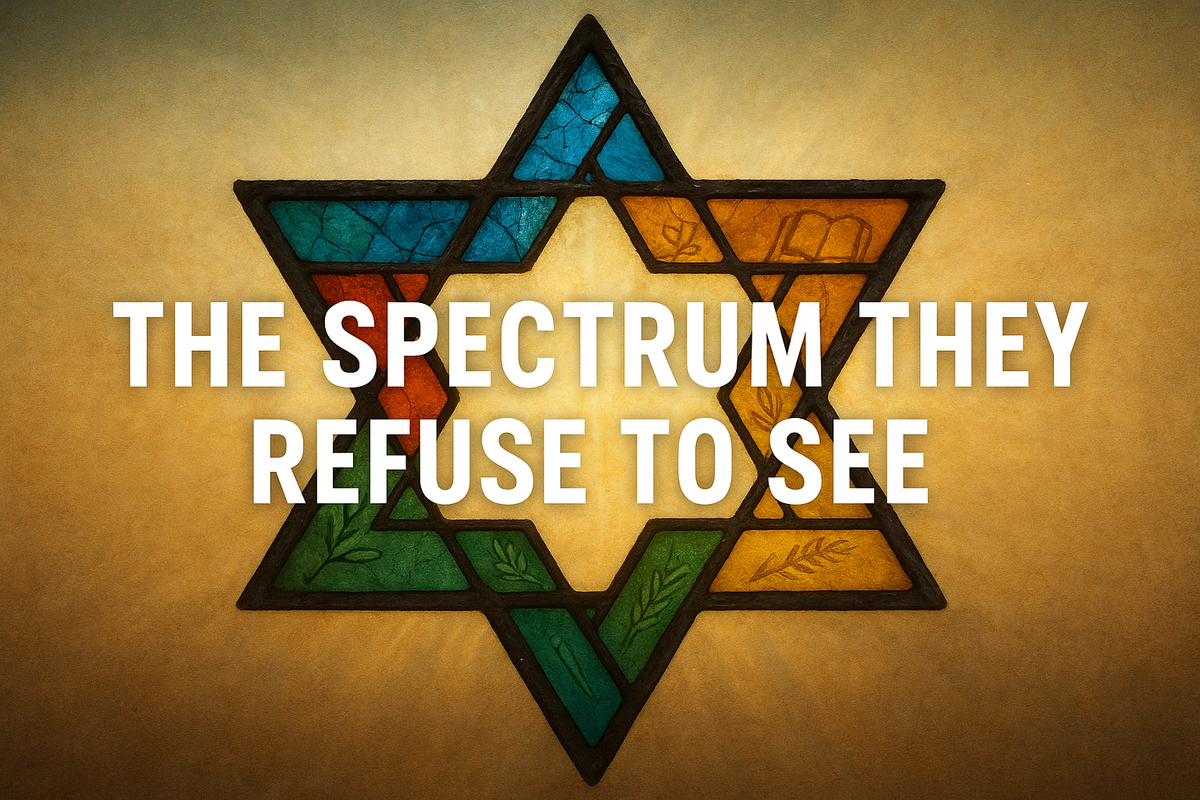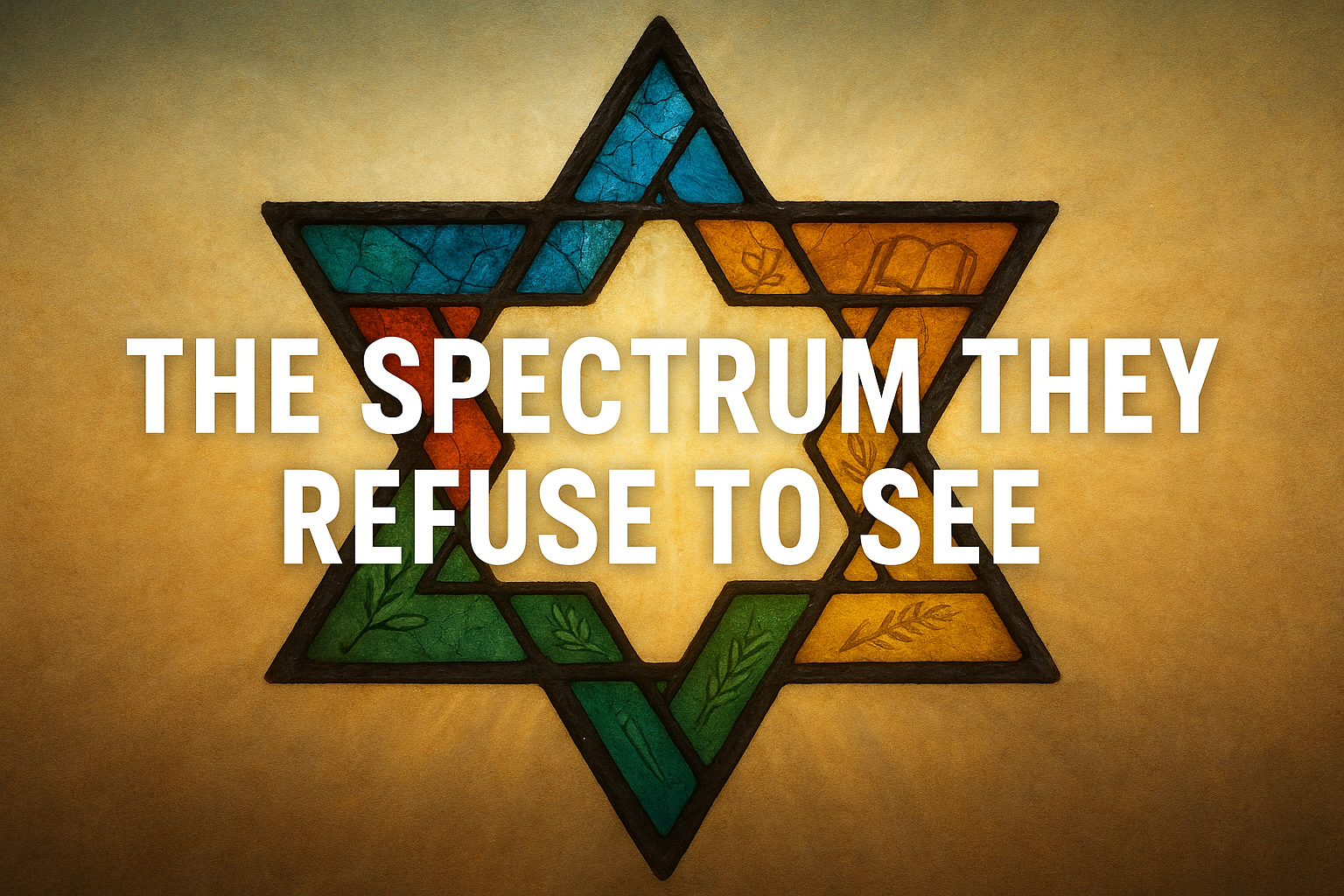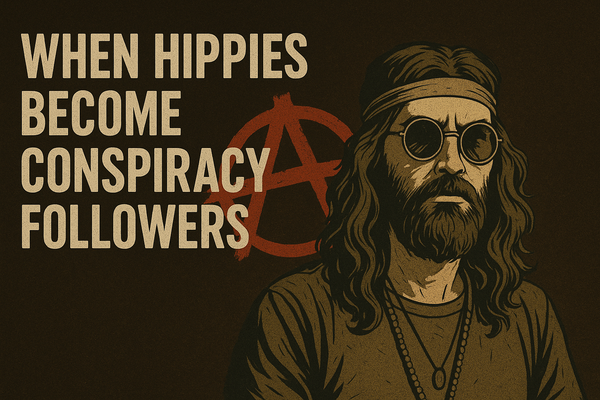The Missing Middle: How Anti-Zionism Erases the Spectrum of Jewish Thought

Modern anti-Zionism collapses a century of Jewish philosophical diversity into a single caricature: the settler-colonial aggressor. In doing so, it erases the internal pluralism that has defined Zionism from its inception—religious, secular, cultural, socialist, universalist, mystical, and moral. Reducing it to “occupation ideology” oversimplifies both Jewish history and the living ethical debates within Israel and the diaspora.
The Spectrum of Zionist Thought
1. Secular-Liberal Zionism
Born from Theodor Herzl’s Enlightenment rationalism, this current envisions Israel as a democratic refuge and a cultural rebirth for Jews after centuries of stateless persecution. Its premise: safety and self-determination are political necessities, not theological claims. For its adherents, Zionism is no different in legitimacy from any other national liberation movement.
2. Cultural Zionism
Ahad Ha’am rejected political triumphalism and instead promoted a spiritual-cultural renaissance. The Hebrew language, ethics, and creativity—not conquest—would sustain Jewish identity. Cultural Zionists see Israel as the moral and artistic heartbeat of world Jewry, not its fortress.
3. Religious Zionism
Rabbi Kook and his followers viewed the return to the Land as a stage in divine redemption. To them, sovereignty has metaphysical meaning. Variations exist—from moderate Torah-guided democrats to fundamentalist factions that reject territorial compromise.
4. Socialist and Humanist Zionism
Figures like Berl Katznelson and Martin Buber envisioned a cooperative, binational society rooted in labor equality and shared land stewardship. For them, Zionism was a vehicle for global social justice as much as Jewish renewal.
5. Revisionist and Nationalist Zionism
Jabotinsky’s Revisionists emphasized security and unapologetic sovereignty. This lineage birthed the right-wing realpolitik of Likud and the conviction that Jewish survival depends on strength, not appeasement.
6. Post-Zionism and Reconstructionist Thought
Emerging in the late twentieth century, these thinkers accept Israel’s existence but seek to evolve it beyond ethnic nationalism toward civic universalism. They critique both the mythic messianism of the right and the self-denial of the far left.
Jewish Anti-Zionism in Context
Jewish opposition to Zionism long predates modern activism. Ultra-Orthodox groups like Neturei Karta reject any human-made state before the Messiah; secular universalists see nationalism itself as morally obsolete. These critiques arise within Jewish ethical reasoning, not against Jewish identity.
By contrast, much contemporary anti-Zionism outside the Jewish world reframes Zionism as monolithic evil—erasing these internal disputes and flattening the entire Jewish intellectual tradition into a single political accusation.
The Consequence of Erasure
When all Zionists are branded colonizers, dialog collapses. The secular liberal who fights for minority rights in Tel Aviv and the messianic settler on a West Bank hilltop become indistinguishable. This binary leaves no conceptual space for Israelis and Palestinians committed to coexistence, shared sovereignty, or moral evolution.
Erasing nuance doesn’t liberate—it silences the very Jews who have long wrestled with power, exile, and ethics.
The Integrative Alternative
A maturing discourse must recognize Integral Zionism: the synthesis of historical legitimacy, cultural creativity, ethical responsibility, and universal compassion. It affirms Jewish self-determination while demanding justice for all who share the land.
Acknowledging this continuum doesn’t deny Palestinian suffering; it clarifies that Zionism is not one ideology but an ongoing argument over how to live ethically in sovereignty.
Conclusion
Anti-Zionism’s greatest error is not moral outrage—it’s intellectual amnesia. By ignoring the diversity within Zionism, it discards the possibility of transformation from within. Real peace will come not from slogans that flatten complexity, but from engaging the full depth of Jewish thought that still dares to wrestle with the meaning of home, power, and justice.
Listen to the Podcast






